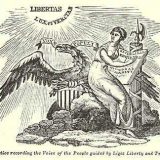Amartya Sen, profesor en Harvard y ganandor del Premio Nobel de Economía, ha escrito un magnífoco ensayo para el periódico The New Republic: The uses and abuses of multiculturalism (el registro para leerlo entero es gratis).
De todos modos, les dejo con una reseña de lo que a mi juicio cabe destacar del texto:
The people of the world cannot be seen merely in terms of their religious affiliations–as a global federation of religions. For much the same reasons, a multi-ethnic Britain can hardly be seen as a collection of ethnic communities. Yet the “federational” view has gained much support in contemporary Britain. Indeed, despite the tyrannical implications of putting persons into rigid boxes of given “communities,” that view is frequently interpreted, rather bafflingly, as an ally of individual freedom. There is even a much-aired “vision” of “the future of multi-ethnic Britain” that sees it as “a looser federation of cultures” held together by common bonds of interest and affection and a collective sense of being.
But must a person’s relation to Britain be mediated through the culture of the family in which he or she was born? A person may decide to seek closeness with more than one of these pre-defined cultures or, just as plausibly, with none. Also, a person may well decide that her ethnic or cultural identity is less important to her than, say, her political convictions, or her professional commitments, or her literary persuasions. It is a choice for her to make, no matter what her place is in the strangely imagined “federation of cultures.”
There would be serious problems with the moral and social claims of multiculturalism if it were taken to insist that a person’s identity must be defined by his or her community or religion, overlooking all the other affiliations a person has, and giving automatic priority to inherited religion or tradition over reflection and choice. And yet that approach to multiculturalism has assumed a pre-eminent role in some of the official British policies in recent years. (…)
There is a real need to re-think the understanding of multiculturalism, so as to avoid conceptual disarray about social identity and also to resist the purposeful exploitation of the divisiveness that this conceptual disarray allows and even, to some extent, encourages. What has to be particularly avoided (if the foregoing analysis is right) is the confusion between a multiculturalism that goes with cultural liberty, on the one side, and plural monoculturalism that goes with faith-based separatism, on the other. A nation can hardly be seen as a collection of sequestered segments, with citizens being assigned places in predetermined segments.
No se puede tolerar-justificar-aplaudir-comprender la represión de la libertad en nombre del multiculturalismo. En ningún modo.





Dejé de leer The New Republic hace dos años. Me alegra saber que puedo volver a hacerlo, o que de vez en cuando sus editores muestran un poco de sentido común.
Los liberales pretenden destruir las naciones con el engañabobos del individualismo a ultranza. Al final encontraran que solo habran destruido los estados mientras las antiguas naciones, ahora llamadas comunidades, seran mas fuertes que nunca, porque la gente necesita del grupo no por nostalgia ni por gregarismo, sino sobre todo para ser mas fuertes. Y si alguien lo duda, que eche una ojeada a la historia de los judios.
en resumen, que ya lo dijo cervantes: ‘amigo sancho que el bien más preciado que tiene el hombre es su libertad’…¿y cómo comulga esto con un pais como el nuestro donde se funciona con el lema «viva mi amo»?…y parece que se trepa alto repitiéndolo bien a menudo.